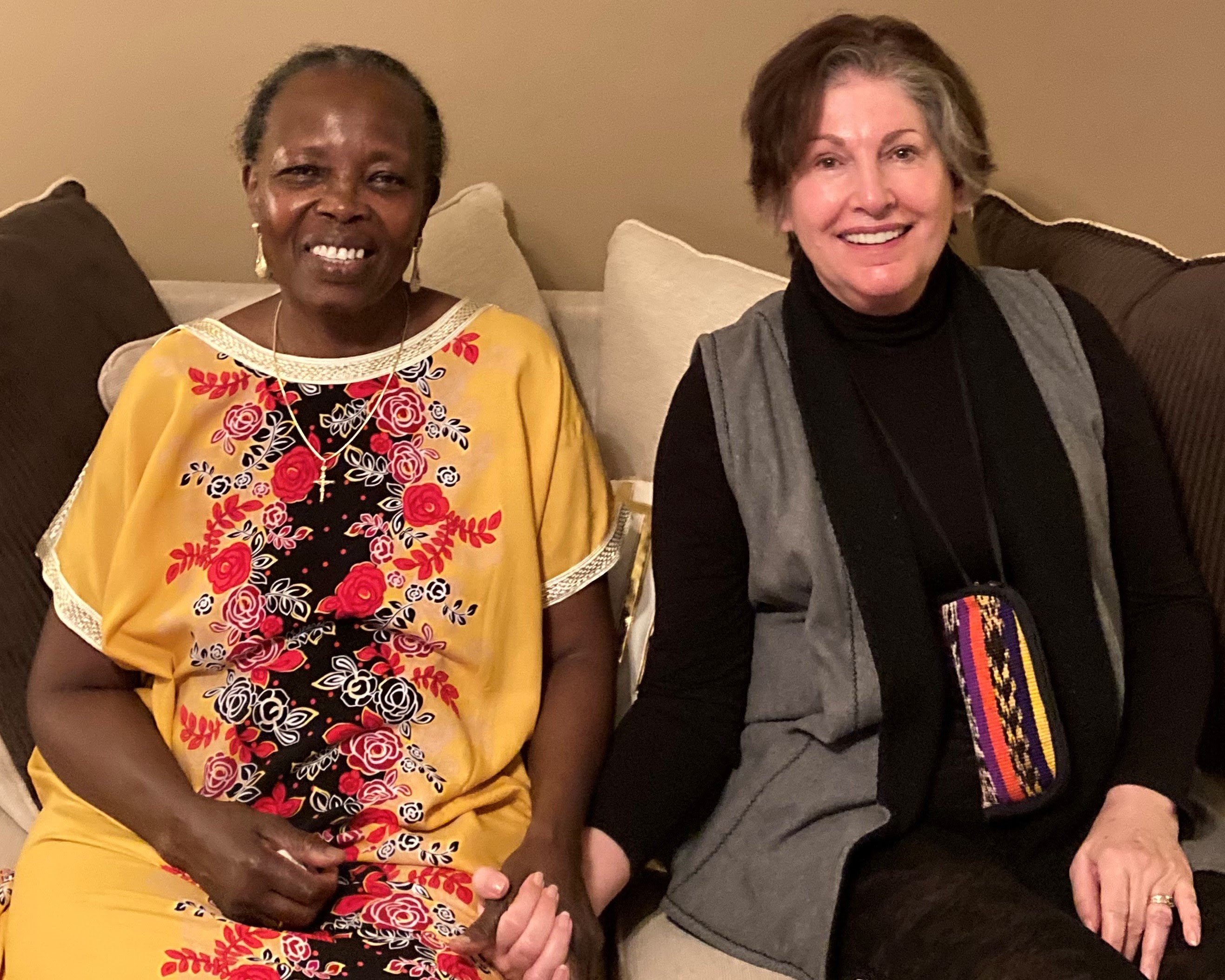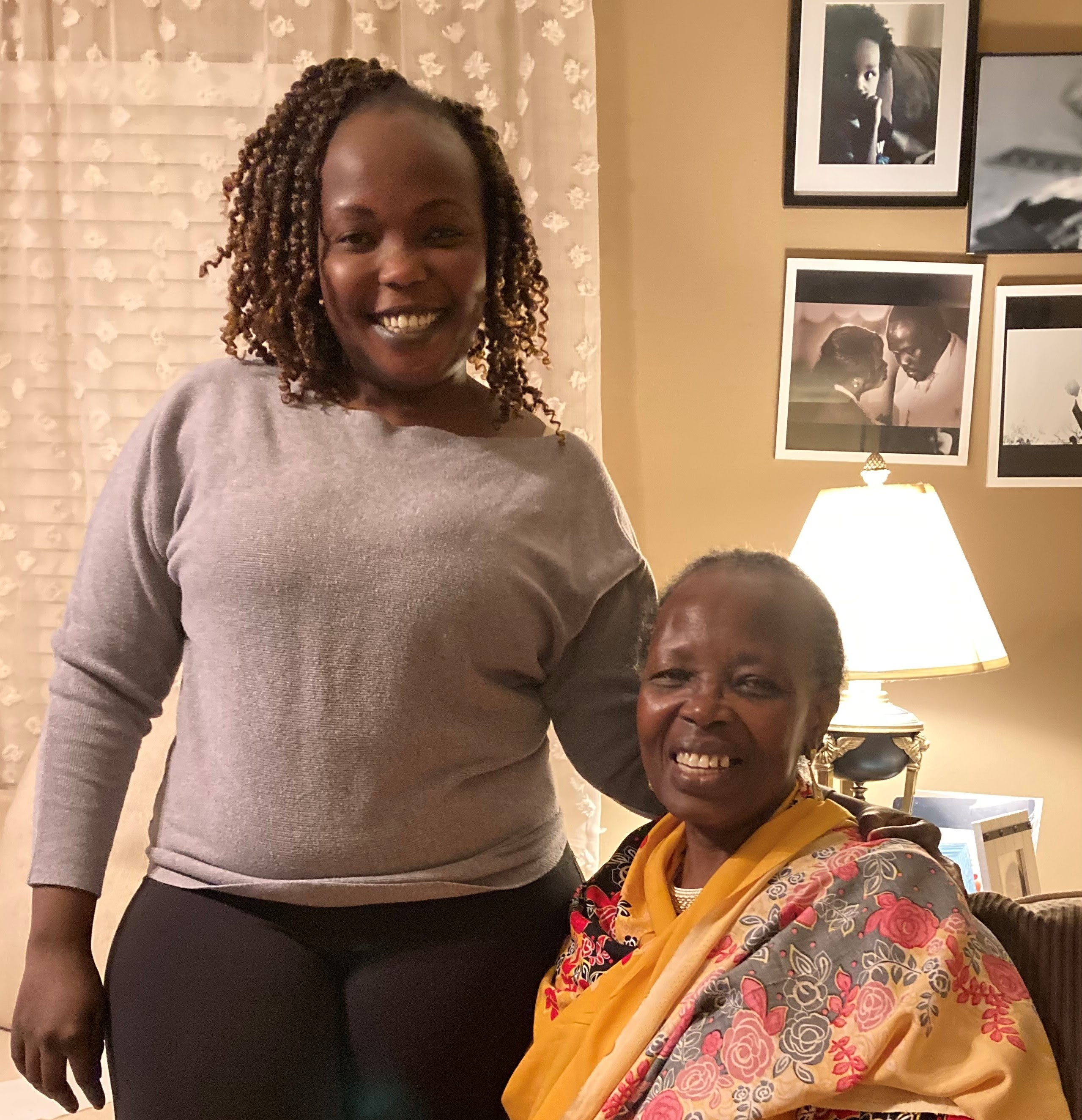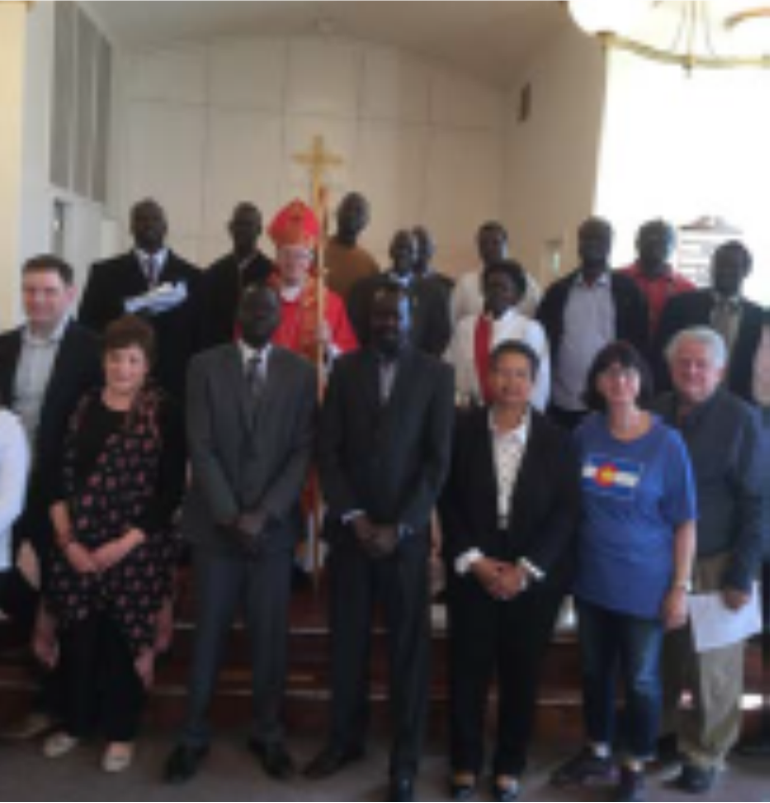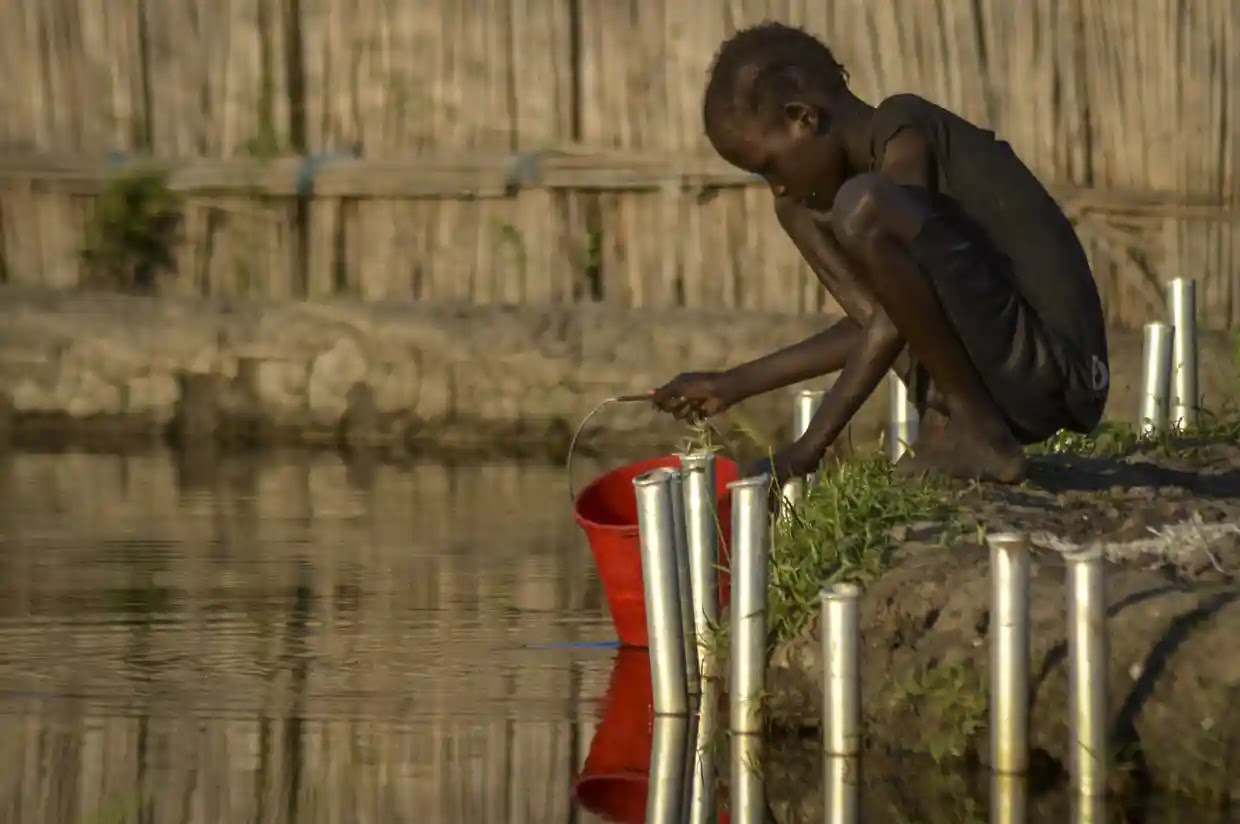Update from Dane Smith
Lawlessness in South Sudan: An Archbishop Speaks Out
A senior South Sudanese official announced January 5 that the President has directed the security forces to put an end to “road ambushes, cattle raids and intercommunal clashes” in the country. The announcement came at the end of a meeting of the National Security Committee.
It followed by a few days accusations by Dr. Paul Benjamin Yugusuk, Archbishop of Central Equatoria, that elements of the South Sudan Peoples’ Defence Forces (formerly the SPLA) were robbing Christians in Lainya County. He cited an incident in which soldiers forced a group of Christians to drink alcohol and then set fire to the hut they were in. He added that such problems were happening all over South Sudan because soldiers are not being trained or paid. He said there were some soldiers living in harmony with civilians but others guilty of atrocities. (Radio Tamazuj)
US Diplomacy with Khartoum as Trump Administration Winds Down
US Treasury Secretary Steven Mnuchin visited Khartoum January 6, when Sudan signed the “Abraham Accords” with the US promising to normalize relations with Israel. Perhaps more important to Khartoum was the signature as well of a Memorandum of Understanding making available a bridge loan of $1 billion to clear Sudanese debt with the World Bank and enabling Sudan to access perhaps $1. billion in Bank assistance. Mnuchin met with Prime Minister Abdalla Hamdok and Sovereignty Council President Abdel Fatteh al-Burhan before jetting off to Israel.
Agenda for the Episcopal Church of Sudan
Archbishop Ezekiel Kondo, Primate of the Episcopal Province of Sudan, has shared with me the results of the December meeting of Bishops I mentioned in our last issue. The bishops rejoiced in the change of regime in Khartoum, the lifting of sanctions against Sudan, the removal of Sudan from the US terrorist list, the agreement reached with rebel groups, and the possibility of normalized relations with Israel. The Episcopal church has been distributing food in Kassala, Wad Medani and Khartoum. The Province will focus on training pastors and the Mothers’ Union, while suspending for the present the ordination of new pastors. It will develop a modernized Arabic version of the Book of Common Prayer. It will do a census of Episcopalians and church properties.
![]()
Executive Director
News from the Diaspora
AFRECS Board member Anita Sanborn recently traveled to St. Louis, Missouri, during this time of the Covid-19 pandemic, to spend time with her longtime friend and colleague, Helen Achol Abyei. They first met in 2004 in Denver, Colorado, where Helen had relocated with three of her daughters upon arriving in the United States as a refugee. Mama Helen has been active in the Diaspora community in North America, including with the South Sudanese Diaspora Network for Reconciliation and Peace (SSDNRP). A highlight of the 2019 AFRECS conference in Lexington, Virginia, was a reading of her play Tribalism No More. Helen has shared her poetry and plays, including her recent Cultural Clashes, with organizations supporting refugees in the US as well as those in South Sudan. Helen became a US citizen and earned a Bachelor’s degree from Metro State University in Denver. She is the mother of 6 highly accomplished children and the grandmother of 12.

Anita: Dear Sister, you and I have been through a lot together. We have traveled together and worked side by side–especially on projects. to improve the lives of children here in the Diaspora and back home in South Sudan. Our families have shared many life events, including the passing of those dear to us. We have been engaged with AFRECS for many years. Tell me what is going on in the Diaspora.
Helen: Since I came into the U.S.in November 2002, the Diaspora has changed a lot. In the beginning, we were all together, even those who came from the North. In Denver, we gathered at St. John’s Cathedral. We felt welcomed and secure. As time went on, we suffered losses such as the death of Dr. John Garang de Mabior. In 2013 we celebrated independence for South Sudan. Those big events brought us together, as did the births and deaths of those in the Diaspora community.
Over the past 18 years, as people have matured in this culture, some have thrived through their hard work. Others have been overwhelmed because they could not adapt or did not have the skills or ability to get an education. A lot of young Sudanese have chosen the wrong path. Culture here is so different. Discipline is different. If you do not change in this country, it will be difficult to keep up with your children. It takes resilience to work several jobs, help your children with their schoolwork, and stay healthy. So many of us have deep scars due to what we have been through.
Some block themselves off from encouragement and advice — due to pride, or because they did not think they needed it. Human nature makes people sensitive. Our people brought with them tribal identities. In some communities we were able to overcome this for a time. But it takes constant attention. We used to come together in the church, but then some groups broke off and started worshipping with their own tribal group. Also, the effects of trauma cannot be discounted. We must acknowledge the role of trauma, war, dislocation, malnutrition, and fear on all of us.
I want to write about all this. Through my plays I have tried to share different perspectives so that we can all see ourselves better.
Anita: The situation in the Sudans has been so difficult, especially in the past five years. How do you see the impact of this?
Helen: There has been so much suffering due to food insecurity, militia activity, the loss of key leaders through imprisonment, assassination, or those forced into exile. Now we even have to say that climate change is bringing floods and altering the growing seasons back home. Survival is all most people can focus on.
Those in the Diaspora are trying to send more financial help This makes it harder for them as they, too, have suffered economic hardships in the US economy. And now COVID-19. The stress has made it hard for people to come together as we would like to do. I believe people are doing what they can. Some are still coming together to worship and pray, but COVID-19 has changed that too.
My friend Busaina in Portland, Oregon is reaching out to her relatives in Sudan to help them buy books and then having discussions by internet, to give the love of reading and help keep education alive. I started doing the same with my cousins.
Anita: I hear you saying this is a time of stress — people need to be comforted.
Helen: Myself, I believe in prayer. Even though we cannot be together now, the day will come. The church is our home, and we will return.
Anita: You have given me a framed verse from Psalm 100: “For the Lord is good and His love endures forever.” It is evident that you remain committed to improving the lives of your fellow countrymen and women — especially the women and children. Your faith is the wellspring of your life. You share your sense of humor and joy with me, and with all.
While my husband was in healthcare facilities in Denver with COVID-19 from August through October, I realized how many refugees work in frontline positions. I was reunited with many in the South Sudanese community working as housekeepers, janitors, CNAs, and RNs. I had not seen them in years. Suddenly we met again in elevators and hallways. We recognized each other, despite our masks. They were compassionate and encouraged me. I look around and see the newest immigrants and refugees are serving in healthcare during this time of great need.

Trinity Cush, Diocese of Iowa

Growing in numbers through immigration, marriage, and births, Trinity Cush, the newest Episcopal congregation in Des Moines, Iowa, has outgrown the small chapel at St. Andrew’s on Urbandale Avenue. According to Eve Mahr and their Postulant for Holy Orders, Jacob Deng Aleer,” We now make a sound that echoes throughout St. Andrew’s building, supported by drums plus prayerbooks and hymnals in Dinka.” Worship in Dinka is now scheduled at 11:30 a.m. Sundays in the same space where the English-speaking congregation prays at 10 a.m., except during the pandemic as both congregations are worshiping online.
Bishop Scarfe’s Visitation to Trinity Cush in Des Moines, Iowa.
This Dinka congregation first met at Cottage Grove Presbyterian Church in 2001. Under the guidance of the Rev. Peggy Harris, they accepted an invitation in 2003 to worship in the chapel of St. Andrew’s, where the rector is Steven Godfrey. (Scottish Episcopal missionaries, such as Dr. Kenneth Fraser and his wife Eileen, are remembered for their medical and educational work in Moruland, centered on Lui, in the 1920s and 30’s.) The name “Cush” evokes the biblical grandson of Noah, thought of as the father of the African continent, as well as the Cushite wife of Moses, and the ancient kingdom of Cush on the Nile.
Looking to the future, Jacob Aleer says, “We plan to pray two times a day, so that people working mornings will attend evening prayer, and people working in the evening will attend the morning prayer. We want to spread the Word of God to the communities in Iowa and outside of Iowa.” Trinity Cush was accepted in October 2020 as a congregation of the Episcopal Diocese of Iowa.
Adapted from the Diocese of Iowa newspaper. https://www.iowaepiscopal.org/
Fall 2020 Edition, Additional information: John Kelei, (515) 441-5541.
COVID-19
The Africa Center for Strategic Studies reported December 20 that Sudan has registered 9,676 cases of COVID-19 since October 1, a 41% increase since the beginning of the year, with total cases reaching 23,316. South Sudan has registered 836 in the same period an increase of only 24% for total cases of 3,540. Given the lack of testing capacity and action in South Sudan, those numbers are particularly suspect. The report did not list numbers of deaths in either country. However, the New York Times on January 3 stated that researchers had turned up deaths in Khartoum alone of more than 16,400 by mid-November.
SOUTH SUDAN
The South Sudan Government announced January 5 that the parties to the R/ARCSS have agreed that the transitional period for the agreement should be extended to 2023 “to allow full implementation of critical tasks.” This is the third extension of the transition. Key unfinished tasks include designation of the 10th governor and security sector reforms, to say nothing of preparations of elections at the end of 2022. Critics will argue that the decision simply cements in place the benefits being received by the sitting governing group, including the opposition.
SUDAN
Security Tensions with Ethiopia over refugees
As of January 4, the Ethiopian army deployed troops to the Sudanese border to prevent additional Tigrayan refugees from crossing the frontier into the refugee camp at Hamdayet. One Sudanese official reported that more than 63,000 Ethiopian refugees are in Sudan. UNHCR is in the process of moving tens of thousands of refugees from Hamdayet in Kassala State, at a sensitive point where Eritrea, Sudan, and Ethiopia meet, to Altanideba Camp in Gedaref State. The Ethiopian Government claims to control the Tigray Region, but Tigrayan Peoples Liberation Front fighters continue resistance in several areas, and a few TPLF troops are believed to have crossed into Sudan with the refugees. (Sudan Tribune Jan 5) Accusations by Ethiopian officials that Sudanese troops have entered Sudan have been firmly denied by the head of the Sudanese Sovereignty Council, Gen. Abdel Fattah al-Burhan.
UNAMID Peacekeeping Force to Exit Darfur
UNAMID, the UN/African Union “hybrid” peacekeeping force in Darfur, first authorized in 2007, was terminated the UN Security Council December 22. It will have six months to complete the drawdown. UNAMID’s mission, with a force that at time exceeded 20,000, was to protect Darfuri civilians, but violence continued to afflict displaced persons and villages in much of Sudan’s Wild West for most of its tenure. The overthrow of the Bashir Government in 2019 and the conclusion of an agreement between the Sudanese Government and most rebel groups removed much of the rationale for the peacekeeping force. The Darfur Women’s Action Group (DWAG) has sharply criticized the Transitional Government for failing to curb continuing violence in Darfur, much of which has been blamed on the Rapid Support Forces, a paramilitary force loyal to Gen. Mohamed Hamdan (Hemedti), a member of the Sovereign Council. The DWAG charges that the RSF represents a newer version of the Janjawit Arab militias, which were responsible for genocidal acts against the “African” ethnic groups of Darfur – especially the Fur, Zaghawa, and Masalit. The DWAG and the Sudan Professionals Association, which played a major role in the uprising against Bashir, have called for the disbanding of the RSF and its integration into the national army.
News from various sources
The Guardian 12/18/2021
South Sudan faces ‘catastrophic’ famine unless conflict ended

Jonglei state, where famine is rife. Photograph: Maura Ajak/AP
UN agencies say millions at risk if aid cannot reach areas of country stricken by floods, violence, and Covid-19.
The head of the UN’s South Sudan mission, David Shearer, told the security council this week that progress on the peace deal continues to stagnate while violence affected much of the country. Around 2,000 people have been killed in intercommunal violence during the past year, including at least 600 deaths in Jonglei state. Shearer warned that a surge in violence was likely during the approaching dry season. He said nine humanitarian workers had been killed in 2020.
The East African 12/21/2020
Igad lifts travel restrictions against Riek Machar
The Intergovernmental Authority on Development (Igad) has formally lifted travel sanctions imposed on South Sudan’s First Vice President Riek Machar during the war. The decision, which follows several verbal confirmations by Igad envoys, means that Dr Mach is free to travel to any of the members of the region bloc and that his house arrest was no longer valid.
Radio Tamazuj 12/17/2020
Cholera vaccination campaign underway in Bor
An oral cholera vaccination campaign is ongoing in the Jonglei State capital, Bor. The drive was launched on Tuesday and will run through till the 19th of this month. Speaking to Radio Tamazuj on Tuesday, Dr. Samuel Majur, the Director-General in the state health ministry, “We are targeting 71, 852 people, ages from one year old and above, in Bor town and other parts, especially those in the displaced camps. The vaccine is administered through the mouth and it is safe and simple.”
According to WHO, during this first round of oral cholera vaccination, 88 percent of the target population, 63 280 individuals aged one year and above, were reached with the vaccine. The second round is scheduled to start in the first week of January 2021 to ensure full protection from cholera for the next three years.
https://radiotamazuj.org/en/
https://radiotamazuj.org/en/
EyeRadio 12/16/2020
Bor Residents Appeal for Dike Construction Materials
Communities in Bor town in Jonglei state are appealing to the national government and partners to work with them to build a permanent dyke to help contain and prevent floods in the area. The area is flooded yearly by the overflow of the River Nile and has been devastated by flash floods that have been ongoing since May 2020.
“We need dyke repair, a permanent dyke, sandbags, food, clean water and excavator,” one resident of the town said. According to the state Relief and Rehabilitation Commission, more than 340,000 people from its nine counties have been displaced by the persistent flash floods. Many families have been affected and dozens of villages have been destroyed by floods in mostly Jonglei, Pibor, Upper Nile, Unity, Western, and Eastern Equatoria states.

Jonglei State, August 2020
Peter Awel who represents those worst affected by the floods in four villages declared that the residents of Hai Machor, Amoyok, Konibor and Panaper are willing to chip in to help build the dykes. “The community here will provide labour as usual,” he said, adding that “we need machines for draining water when the dyke is constructed.” “There is also a need for resettlement, building materials, bamboos, iron sheet, among others.”
Author: Daniel Danis | Published: Tuesday, December 15, 2020
https://eyeradio.org/bor-
THANK YOU FOR YOUR GENEROUS SUPPORT!
We are grateful that you our supporters have continued to propel AFRECS in expanding our impact on the essential peacebuilding work of the Episcopal Church of South Sudan. We hope you will consider another generous gift — or whatever you can afford in this time of COVID — as we begin our new program year You can contribute online at https://afrecs.org or send a check made out to AFRECS to P.O. Box 3327, Alexandria, VA 22302.
Board members Caroline Klam and Richard Jones contributed to editing this issue.


